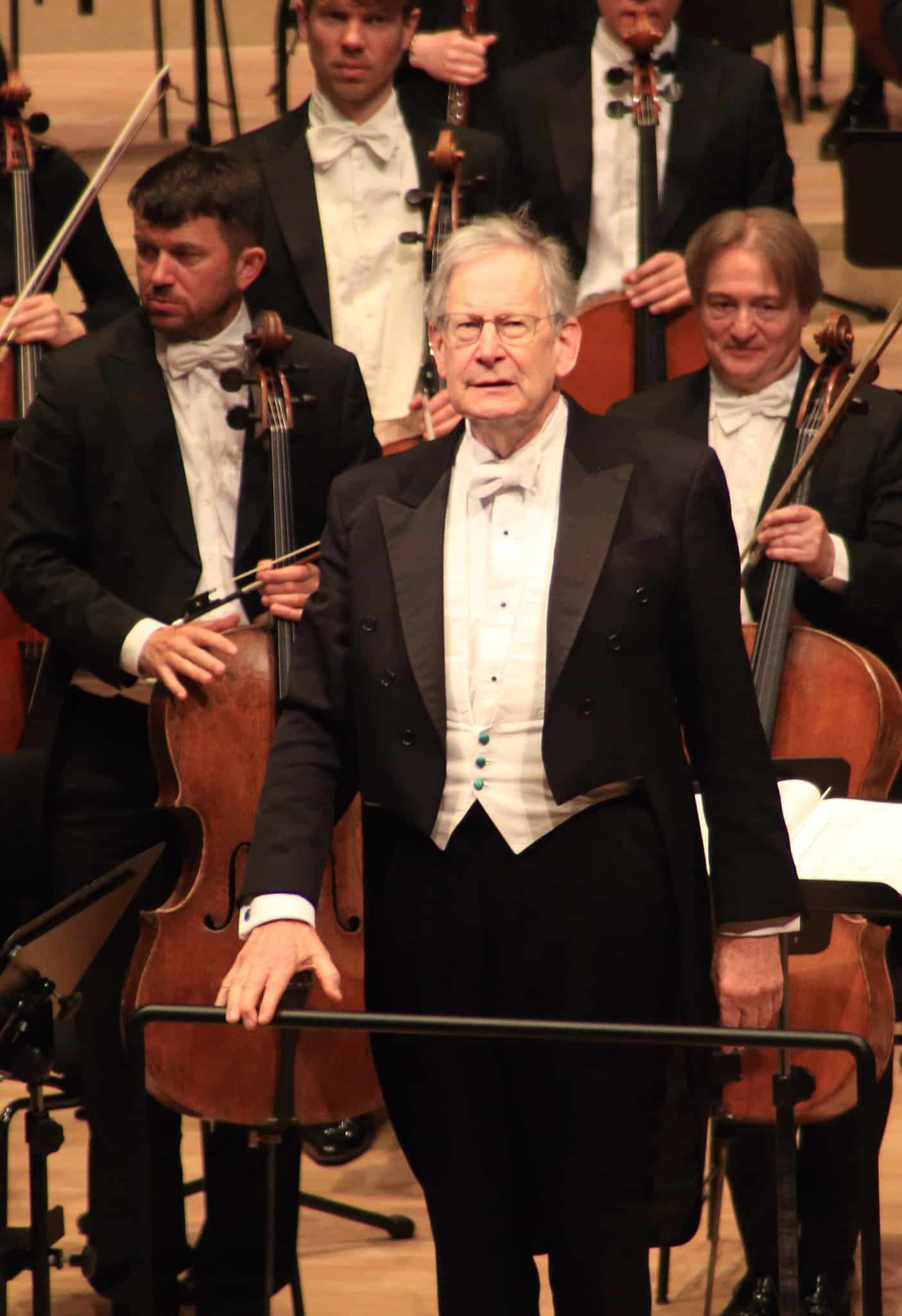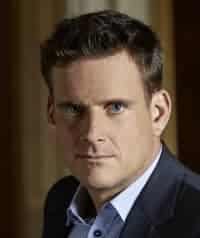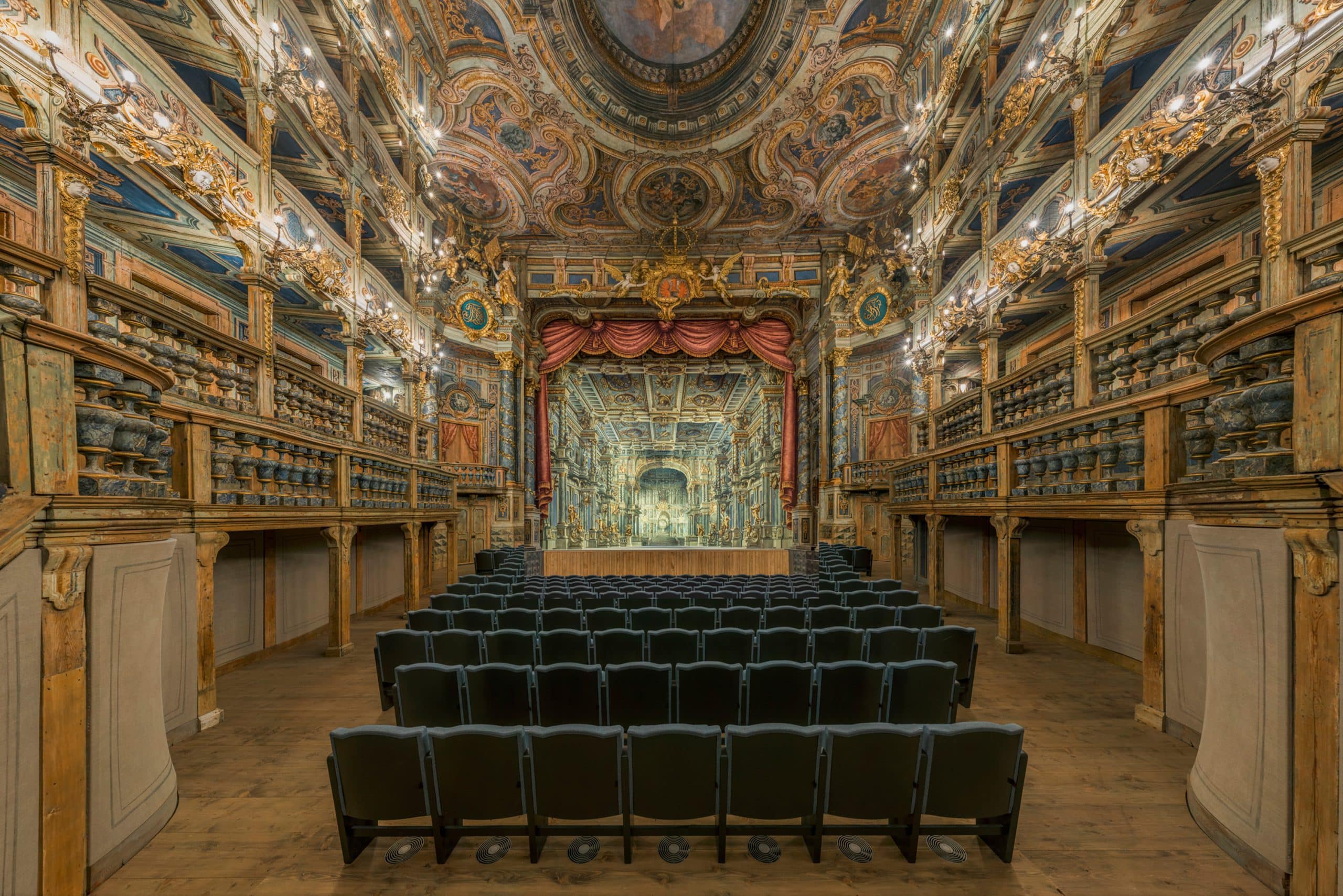Berlin Philharmonic secrecy is broken
mainThey tried to keep the election location a secret. In the past, it has been a rich man’s villa in the Berlin Woods.
Today, Austrian media are reporting that the 124 players have gathered at the Jesus-Christus-Kirche in Berlin-Dahlem to elect their next conductor.
The church has immense spiritual significance for Berliners. From 1931, it was the pulpit of pastor Martin Niemöller, one of the most outspoken Christian opponents of Nazism. Niemöller, who spent seven years in concentration camps, is the source of the moral exhortation to confront evil:
First they came for the Socialists, and I did not speak out—
Because I was not a Socialist.
Then they came for the Trade Unionists, and I did not speak out—
Because I was not a Trade Unionist.
Then they came for the Jews, and I did not speak out—
Because I was not a Jew.
Then they came for me—and there was no one left to speak for me.

UPDATE: A Berlin Phil spokesperson has said she does not expect a result before 4pm, and that there are no toilets for journalists in the vicinity.





The players certainly need spiritual assistance, given the speculations raging around the building.
And isn’t this where Karajan recorded before the Philharmonie?
Before and after, since it is a much better acoustic for the recording of the romantic and late romantic repertoire, than the Philharmonie.
Yes, with the BPO, including the Gold standard 1973 Strauss Also sprach Zarathustra recording. Listening to that right now. The Jesus-Christus-Kirsche venue was perfect.
Yes, I was going to say, they made many great recordings in that location – not only under Karajan.
A historic site for the “old” Philharmonic.
just for the record… Ferdiand Leitner, Eugen Jochum, Fritz Lehmann, Paul van Kempen, both Ferenc Fricsay and R. Chailly (the two latter both with the Radio Symphony) recorded extensively at the Jesus Christus Kirche in the years before and after the Philharmonie was built.
Fricsay also made quite a number of recordings with the Betlin Phil, including one of the great Beethoven Ninths with Seefried, Forrester, Haefliger and Fischer Dieskau.
If they had really wanted to send a signal, they could’ve held their conclave at the Neue Synagoge in Berlin.
Good propaganda must be more subtle.
Huh? What kind of signal should that have been?
Taken all together, Niemöller’s legacy could be used to send mixed signals. He was a national conservative who initially supported Hitler, and who only changed his stance after Hitler began attacking the church. He is also controversial because of some comments about Jews that follow along the lines of traditional anti-Semitism. In a sermon in 1935, he said: “What is the reason for [their] obvious punishment, which has lasted for thousands of years? Dear brethren, the reason is easily given: the Jews brought the Christ of God to the cross!”
Niemöller was the navigator of U-151 which sank 55,000 tons of Allied ships in about 3 months at sea. He was subsequently made commander of UC-67, which sank many ships while blockading the port of Marseilles. For his achievements, Niemöller was awarded the Iron Cross First Class. After the war, Niemöller resigned his commission, because he opposed the new democratic government that formed in the wake of the Emperor William II’s resignation.
On the other hand, Niemöller eventually stopped supporting Hitler and opposed him so strongly that he was imprisoned. After the war he became of pacifist. One of his most controversial acts was a visit to Ho Chi Minh during the Vietnam War.
So which conductor might fit with the image of a national conservative (but opposed to fascism,) and who strongly questions at least some aspects of democracy, to say nothing of the evil deeds of imperialist America…..? It looks like the BPO might have its post-Rattle strategy all worked out and has found just the man for the job….
Anyway, I find this obsession with who’s going to be the GMD of the BPO a solid sign of how dead and imaginationless the classical music world has truly become. Such groveling eagerness to learn who their next Maestro (Master) will be, combined with an obsessive sensitivity toward perceived slights of classical music’s presumed Vaterland, creates the oddest image of our art form. There’s no other genre that continues to promote such a conservative, authoritarian, nationalistic ethos.
William, must you be so negative all the time? I have yet to read a comment of yours that isn’t filled with hatred and criticism. Can’t you just enjoy that this is an exciting time? The BPO influences and effects people all over the world. The new MD will impact the lives of many. I, for one, am very much looking forward to find out who that will be.
Take it easy. Their choice of the Jesus-Christus Kirche has nothing to do with Niemöller. That church has been since the 1950s the regular recording studio for anything that is not happening in the Philharmonie. It’s just THE other space for them to meet, if they don’t want to meet in the Philharmonie itself.
And if you want to read anything into it, it’s a statement about their worshipping of their tradition…
Perhaps they can change the name of the church to Jesus-Christus Maestro…
Thanks for all the prewar info. It shows how people can adjust their opinions.
The last paragraph however, raises some questions. The notion of ‘Germanness’ for a German top orchestra is related to the repertoire they excell in, and is supposed to behtier speciality, and cultural identity is a good thing and not necessarily ‘nationalism’ with all the overtones of chauvinism. If orchestras become interchangeable because of their frequent touring and the streamlined consensus on interpretation (as stimulated by the recording industry), important characterization will be lost. Then, ‘conservatism’ is an easy and superficial description of the problems of orchestral programming and a greatly exaggerated one. ‘Authoritarian’ is supposedly a term directed towards the post of the conductor, who is merely considered ‘bossy’ and ‘authoritarian’ by people who don’t understand orchestral practice or players who have not done their homework. The eagerness with which the appointment of the new chief at BPO is awaited, is a sign of music life being very alive…. it does COUNT who will conduct this orchestra.
Yes, the readers of SD are quite familiar with your understanding that we must return to a world with more nationalism. A firm rule must be imposed upon each nation lest they destroy themselves and Western culture’s transcendent musical heritage through the questioning and insecurities expressed by the post-Holocaust, Darmstadter cabal. Globalism is a cultural disease that must be replaced by a strong, confident leader and a new respect for the nation-state. Any relationships to the past are purely coincidental…
I wish such ironies were rare, but they are not. I remember a program note written by a Chairman of one of the Munich Philharmonic’s program booklets in 1992:
“Sergiu Celibidache is an extraordinary European, so impressive, because in him an unobstructed masculine aura is projected that is not corruptible. And the world is in great need of this, because we live in a fatherless society, a world without standards in that point. And there he is, such a man, who does not allow himself to be corrupted and quite openly expresses-¬especially during concerts–, what is happening inside him, and that is naturally a deeply moving vision. Listeners and performers can still experience music with him as a ‘revelation’.”
Ah, that “fatherless society” of Bayreuth where the m/f ratio in the winds is 60 to 2. Or the Berlin Phil which at 14% is the third lowest in the world. About the same time that program note appear, I had to write two letters to the cultural ministry to get the Munich Philharmonic to remove the swastikas from their old music. They never seemed to bother them…
Sadly, it does count who conducts the orchestra. It’s unfortunate that classical music has been unable to move beyond such forms of artistic and social organization. Surely the BPO will find a Maestro with an “unobstructed masculine aura,” who through his “revelations” will put the capital of their Kulturstaat back on the supreme pedestal for which they have struggled so valiantly and long…
But classical music fans don’t look that deep. Like Franny above, they just want to listen to their Mozart.
No, William. I’m actually a professional musician playing in a major opera company. I don’t just want to listen to my mozart. While I do enjoy Mozart, I enjoy many different varieties of classical music. Why do you make such assumptions? Because you only want to see bad things. You turn any situation, good or neutral, into a terrible thing. You can only pick out the badness in people. This is an exciting time when one of the world’s best orchestra gets a new chief. I would rather embrace it than see every negative angle.
Not sure I’m so negative, but the history of art has been made by those unhappy with it (and of course, they are often denounced by orchestra musicians…)
Your gross generalizations have begun to bore me, William.
To be more specific, I think we must be dealing with yet another person with an “obsessive sensitivity toward perceived slights of classical music’s presumed Vaterland” that I specifically mentioned in my original post. How ironic. Or perhaps an American pit player sour about my criticisms of the dismal state of opera in America. If you want to talk about me instead of the quite valid points I made, have the integrity to use your real name and let us know who you are. I suspect we won’t be hearing who she is, and the usual cowardly excuses for why not…
“combined with an obsessive sensitivity toward perceived slights of classical music’s presumed Vaterland”
And once again, cue the Germany/Austria bashing.
I find it interesting that no one blames England for its obsession with British composers that no one on the planet cares for. As a reader of several music magazines from several countries, I can honestly say that, musically speaking, there isn’t a more insular country than England. Yet, this seems perfectly OK. But if a legendary orchestra from Germany mentions the importance of maintaining some sort of German tradition, some immediately see some dubious connections…
Ask Joe Blow on the street, whether in Japan, USA, Brazil or Spain, to name great composers, and you can be sure that 3 out of 4 will be German/Austrian. I’m sorry, but that’s a reality. Tippett won’t fill halls in Tokyo, neither will Charles Ives. Beethoven will.
This is not only childish, this is xenophobic.
Do you want to discuss everything that’s wrong with the USA?
Obsession? Hmm. I just believe that it is an exciting time, as is the process that will result in a new MD for the NY Phil, which–long after his passing–is still viewed as “Bernstein’s orchestra.” The BPO is one of those few remaining ensembles which “sounds like itself,” and not another victim of the current “sistema” of traveling maestri, that results in orchestras losing their traditional sound and style. The others, in my mind, would be the VPO and the Czech Philharmonic.
Whoever is chosen must hold the traditions of the BPO in utmost respect, for this is the orchestra of Furtwangler, Karajan and Abbado (among others). Does that mean there is no room for the new? Of course not, and criticize as one will, Sir Simon has taken a few chances. I’m not necessarily a fan (in fact I once heard one of the worst Beethoven 9’s under his baton) but his daring approach to the St. Matthew was (to me at least) incredibly moving.
“The others, in my mind, would be the VPO and the Czech Philharmonic.”
Don’t forget the Dresden Staatskapelle.
According to twitter, Nelsons is the chosen
and the orchestra has just denied!
Gramophone are saying Nelsons.
London-based rumour, nothing more
The Guardian wrote “Even if the musicians come up with a clear preference today, though, it’s unlikely the decision will be made public very quickly”
So we probably have to be patient.
For sure. The anointed lucky bugger has to be informed. He’s probably half a world away so it will have to wait until he wakes up. Agents have to ramp up. Contracts have to be negotiated. Signatures have to be inked. Champaign has to be chilled. Photo-ops have to be engineered. Bilboards have to be printed… etc.
In other words, it could be hours.
It is entirely apposite that the BPO convene at the Jesus-Christus Kirche. It was there that they made some of their most famous recordings in the 1950s, ’60s and early ’70s, including of course Karajan’s 1963 Beethoven cycle, his ‘Ring’, Bohm’s Mozart Symphony set, the Gilels/Jochum Brahms Piano Concertos recordings and many others. They also recorded a variety of orchestral and choral works under Giulini there in the 1990s.
My introduction to the sound of the Berlin Philharmonic was via recordings made in Dahlem by DGG and there’s a special warmth, glow and atmosphere that the Berlin Philharmonie found hard to match. Indeed, during the post war boom in stereo recording only the Sofiensaal in Vienna or London’s Kingsway Hall came anywhere close to matching it.
I have visited the church myself and could easily imagine being part of those classic recording sessions. History hangs heavy there indeed!
After all the excitement here, I regret that the BPO did not arrange for the election in the Sistine Chapel in the Vatican;-)